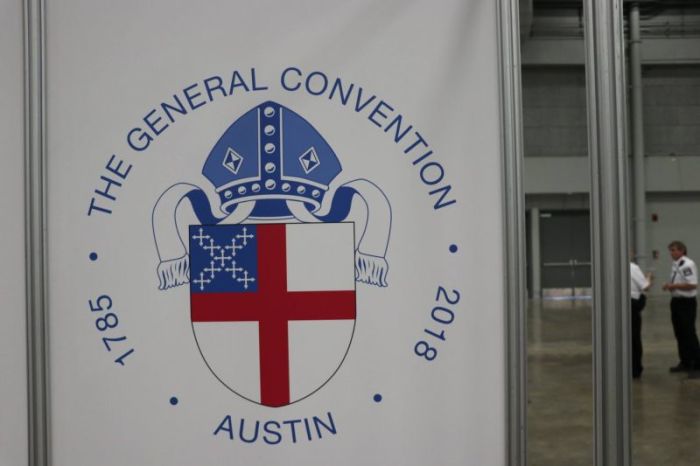Episcopal Church Expands Gay Marriage to All Dioceses Where Bishops Object

The Episcopal Church's General Convention, led by Bishop Michael Curry, passed a resolution last Friday that expanded the right for gay couples to marry in all dioceses even where local bishops theologically object to same-sex marriage.
At its triennial convention in Austin, Texas, the Episcopal Church's House of Bishops and House of Deputies voted to approve resolution B012, allowing gay and lesbian couples to be married by clergy in eight dioceses that had previously not allowed marriage rites for same-sex couples.
As the General Convention had previously voted in 2015 to allow clergy to marry same-sex couples, it also gave bishops who opposed gay marriage the right to forbid priests in their diocese from performing same-sex marriage ceremonies.
Although the new resolution still gives clergy the right to decline gay marriage ceremonies, bishops who oppose of same-sex marriage rites will have to call on another bishop who does not oppose to provide pastoral support for the couple and the clergy member that will be involved in the ceremony.
The move directly impacts dioceses in Albany, New York; Central Florida; Dallas; Florida; North Dakota; Springfield, Illinois; Tennessee and the U.S. Virgin Islands.
The new policy will go into effect on the first sunday of Advent, Dec. 2. The resolution is a compromise of an earlier proposal that would have put the new marriage liturgies in the Book of Common Prayer.
"I think this is a really important moment for the church. We do this without there having to be one side wins and one side loses. Very much like the theme of the whole convention, there's a great movement for the church to really be the church in this time," Long Island Bishop Larry Provenzano, who proposed the approved resolution, told the Episcopal News Service.
Bishop John Bauerschmidt of the Episcopal Diocese of Tennessee told The Tennessean that it still remains to be seen how this new resolution would play out in his diocese after he disallowed same-sex marriage in his diocese following the 2015 resolution.
"In other words, there is much to work out. It also preserves the ministry of bishops as chief pastors and teachers in our dioceses," Bauerschmidt told the outlet. "We will be working out what it means for our diocese with clergy and congregations in the coming days."
According to the Dallas Morning News, Dallas Bishop George Sumner said the debate over expansion of gay marriage rites was like a "family argument" where the progressives tried to reach a compromise that would make the traditionalists in the diocese more comfortable.
"We're probably more traditional than other dioceses in the Episcopal Church," Sumner was quoted as saying. "The convention has given us a space to do that."
Sumner said he would reach out to neighboring bishops to oversee the marriage ceremonies in his diocese.
Activists who pushed the denomination to fully embrace same-sex marriage are calling the resolution a step in a positive direction.
"I think it's a wonderful compromise, which respects the dignity of the bishop and his position, but still allows marriage for all in their home congregations," Connally Davies Penley, a member of a Tennessee grassroots group called All Sacraments for All People, told the Tennessean.
William Love, the bishop of Albany, meanwhile, argued that the new resolution could possibly trigger a stark backlash similar to what the Episcopal Church faced in 2003 when it began consecrating openly gay bishops.
"I'm concerned that when this passes, the floodgates are going to open once again, the bloodshed is going to open once again, the insidious lawsuits are going to continue once again," he said during the debate on the resolution, according to RNS.
The Episcopal Church was disciplined in 2016 by the global Anglican Communion after years of pro-gay decisions, including allowing clergy to perform same-sex marriages. It was barred from taking part in Anglican decision-making on any issues pertaining to doctrine or polity and from representing Anglicans on ecumenical and interfaith bodies for three years.




























